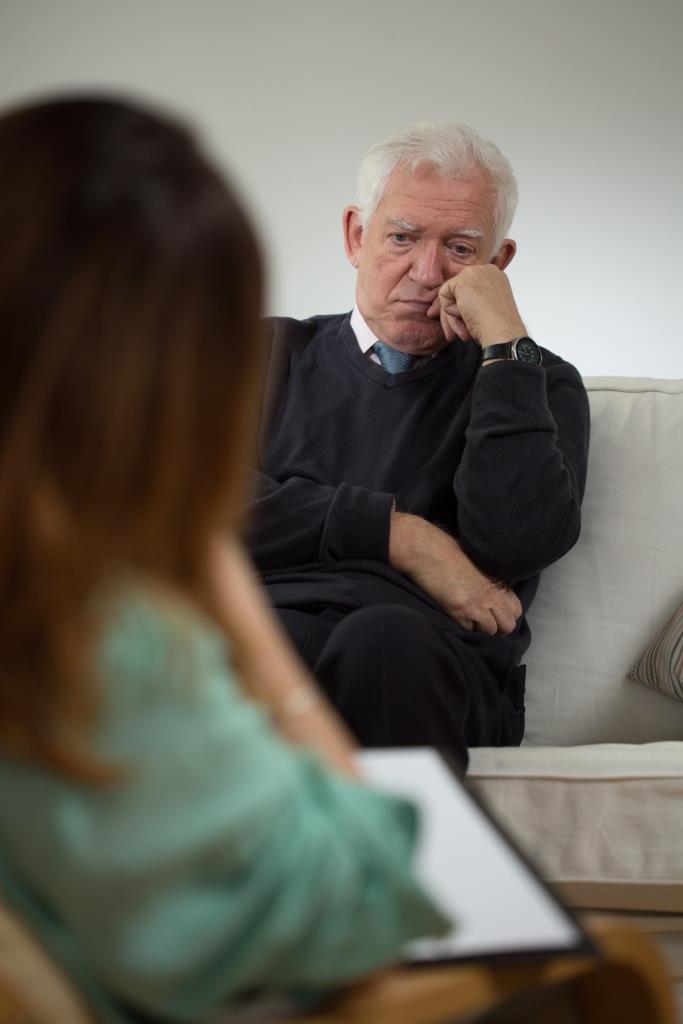When Men Come to Counseling
BLOG by Therapy2Thrive®
925-998-3392
When Men Come to Counseling
People often ask me if men actually come to counseling and if so, what do they do there anyway. I get questions such as: Why do men avoid coming to counseling? Why should I go to counseling, all I have to do is “man-up” and control my feelings….right? How do I get my husband to go? Don’t they just tell you the same thing everyone does? Well, as both a man, and a therapist I have noticed a few things about men and counseling and perhaps these might help if you are struggling.
First, men often come to counseling with great hesitation and reluctance. It seems that we, as men, are taught that asking for help or support when we are struggling is a sign of weakness and if we reach out we will be treated as such.
Men often come to my counseling room when they are struggling so much that they are feeling at their wits end and like their lives are totally unmanageable. As opposed to women who generally ask for support from friends, family members, and from professional counseling when they feel overwhelmed and worried they might not be able to navigate an issue, we, as men usually try to tough out personal and emotional problems and pain. That often leads to our utilizing ways of dealing with our issues which only contributes to our strain such as drinking, withdrawing from our friends and family, distancing from our passions, and turning any hurt or pain into anger.
When we do come to counseling it is usually at the stern request (i.e. demand) of our significant other. Men often tell me that they are in counseling because their wife has issued an ultimatum…”go to counseling or our marriage will be over”. In essence, most men enter the counseling room both under protest and in fear of losing their marriage and family. This is a tough way to start and although I welcome anyone who walks into the counseling room I often think about how much men suffer in their hearts and heads before finally seeking help.
So, what brings men into counseling, and is it different from what brings women to the room? My experience is that we all struggle with human issues. However, I do see some recurring themes that men bring into the counseling room. First, extremely harmful self-criticism is often a component to men’s struggles and surprisingly that self-criticism is something that we believe to be one of our biggest self-motivators. Overall, I find that the levels of self-criticism we impose on ourselves do a great deal of harm and are not something we ever find a way out of. Self-criticism has a way of building on itself so that no matter what we accomplish there is always an area on which we focus that tells us we are not good enough or that we should have done something better, faster, with more skill, or been more successful. So often we have framed our self criticism as the way we motivate ourselves to change or do better but usually the result is that we have a constant drill sergeant in our head pointing out every miss-step, every fault, and every imperfection. This is a hard way to live and most of us move through our lives not realizing how much damage that voice does to us every day.
I also see that we, as men often have expectations of ourselves that do a lot of harm. We usually expect that we can and should be able to handle everything that comes our way with at best total competency and at worst a cool indifference to any level of emotionality. This is why it is so common that the loss of a job, the death of a family member, or a shift in a relationship brings unexpected intense emotional reactions that quickly overwhelm us. We are taught to expect a non-emotional reaction from ourselves. If we do feel powerful emotions we equate those with something being wrong with us.
When we treat ourselves like this through our lives it leads to feeling emotionally disconnected from others, a lack of ability to know how to be open with our loved ones, a need to escape (often through alcohol, drugs, porn), depression, and anxiety.
In the 1840’s Henry David Thoreau wrote “The mass of men lead lives of quiet desperation.” I read these words when I was young and didn’t understand it at that time. Through my years working with men in the counseling room I’ve come to learn that Thoreau’s words are true and that we as men usually suffer silently in our inner world, living in a lonely isolated place.
The good news is we need not suffer in this way. There is help, and with a bit of work and growth I see men find ways to connect deeply with their families and their wives. I see men overcome the self-criticism they didn’t realize was destroying their self-esteem, and I see men built support and connections in healthy ways which gives them the ability to navigate through the losses and struggles that life throws in everyone’s path.
If you are struggling, reach out. Counseling can and does work for men if we allow ourselves to accept that through growth and healing we can find a path to being the man, the father, the husband we hope to be.


Therapy2Thrive® brings Hope for Healing
Our counselors at Therapy2Thrive® provide compassionate, practical, and evidenced based practices to assist you in the therapeutic process to meet your goals and find hope to heal the challenges you are facing.
Contact our family counselor in Pleasanton for private consultation.
